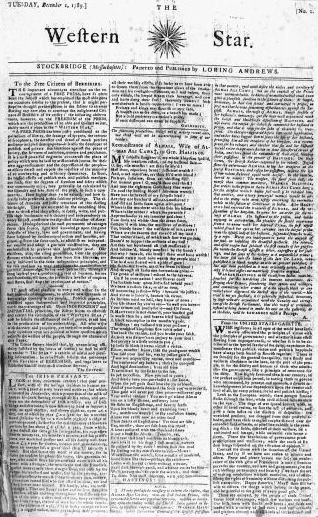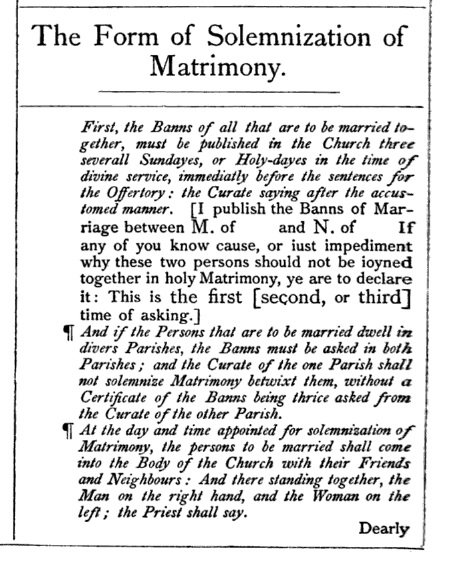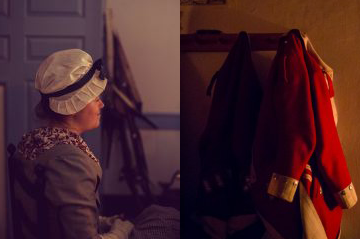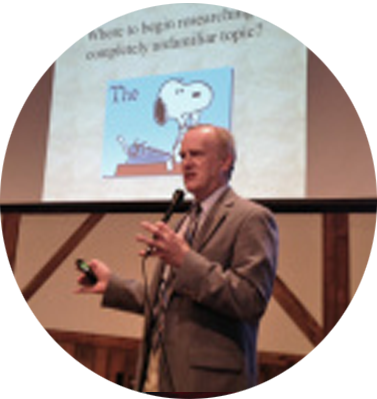The Malicious, Morose Malady and the Vindictive, Vagrant Vixen: A 17th Regiment Story, Part 2
In this week's blog entry, we return to finish the tale of Private Thomas Mallady's post-war adventures, initially chronicled this past May by guest author Don Hagist. While the documentary trail might not give us all the information we could hope for, there are some clear messages about the nature of marital disharmony in post-war New England that should give any would-be deserter food for thought. For more soldiers' stories, check out Don's blog: British Soldiers, American Revolution.
Click here for Part I
-- Will Tatum
Part II
The next week's issue of the Western Star, on 18 September, carried Thomas Mellalew's response, this time datelined from Pittsfield:
"To the Publick.Whenever the character of an individual is notoriously attacked, it is incumbent on him, if he has any regard for his reputation, or respect for the opinion of the world, to come forward in his own defence. The writer is sensible that a private controversy between a man and woman, is not a very pleasing subject for the attention of the community: His only excuse is, that he write in his own defence.
"In the Star of last week, was published a piece under the signature of Hannah Mellalew - a performance in which my character is represented as black as the pen wielded by the hand of falhood [sic] could possibly describe. A publication, signed by a woman, the blackness of whose character my modesty will not permit me to lay naked to the view of the world - a woman with whom had it have been possible for any man to have lived, would not have been under the necessity of strolling about after a second gulled companion, while the first was still living. Let any ingenuous mind read the performance to which I allude, and then say, if any but an abandoned prostitute could ever have come forward with such a publication in the face of the world. No, not a woman on earth, who is not totally devoid of every species of virtue, could have assumed the impudence to publish such brothel ideas of a man, whom she claims as her companion.
"The charges alledged against me in that piece, it is in my power, at any time to confute. But I do not conceive that a Newspaper is a proper place to produce affidavits to establish the character of any man.”
"Neither do I believe that the publick are so strongly inclined to believe any man a villain, as, without proof, without witnesses, or even the appearance of truth, to give credit to the aspersions of a malicious, vindictive, vagrant vixen. Thomas Mallady.Pittsfield, Sept. 1792."

It didn't end there. The next week's issue of the Wester Star, dated 25 September, contained Hannah's next volley, this one a barrage including statements from other individuals:
"To the Publick.Thomas Mallady (or Mellalew) having asserted in the paper of last week, that the charges I have exhibited against him are not true, the following are submitted to the inspection of the publick. Hannah Mellalew.
"Middletown, February 18, 1778."These may certify that Thomas Mellalew and Hannah Andrews were married on the day of the date above, according to the form in the office for the solemnization of marriage, in the book of common prayer, by me, Abraham Jarvis, Minister of the Church of England.

"These may certify whom it may concern, that Thomas Mellalew (or Mallady, as many persons called him) some years since lived in this town with his wife; and, while he lived in this town, he advertised his wife in the Springfield Newspaper, lest she should run him in debt when he was absent; and afterwards put in another advertisement, wherein he manifested his sorrow for the first, and said he had no foundation or just cause for publishing the first.

Furthermore, while he lived in this town, he made an appointment to meet a Negro's wife, at a certain place in the night time, in a certain barn; and the Negro's wife informed Mrs. Mellalew of the appointment, who procured sundry persons, one of whom was dressed in a woman's clothes, to meet at the time and place appointed, when and where Mellalew attended in the dark, and his conduct was such, as caused them to lead him home to his wife; and he did not deny his intent in going to the barn, and in the barn called the Negro's wife by name several times, before the persons lying in wait discovered themselves. The substance of the above was sworn to before me, as nearly as I can recollect, by two of the persons who were in the barn, and one of them who was dressed in women's apparel.
P. S. Mrs. Mellalew's character in this town is good, for any thing that I know.
Samuel Mather, Justice of the Peace.Westfield, August 17, 1792."
The story certainly didn't end there, but unfortunately our documentary trail does. Further research might reveal what became of this former soldier of the 17th and his estranged wife, and help us decide whether he was "malicious and morose," or she was a "vindictive, vagrant vixen."
 DON HAGISTis a life-long British Army researcher and founding member of the 22nd Regiment of Foot (recreated). His scholarly career includes preparing and publishing numerous editions of period primary sources and analytical articles for the living history community. Most recently, Hagist has written two major books.
DON HAGISTis a life-long British Army researcher and founding member of the 22nd Regiment of Foot (recreated). His scholarly career includes preparing and publishing numerous editions of period primary sources and analytical articles for the living history community. Most recently, Hagist has written two major books.
The first, British Soldiers, American War examines the Revolutionary conflict through the eyes of British soldiers’ narratives. The second and more recent is The Revolution’s Last Men, an exploration of the last veterans of the War for Independence who were captured through early photography. Hagist runs his own blog and is a regular contributor at the Journal of the American Revolution

